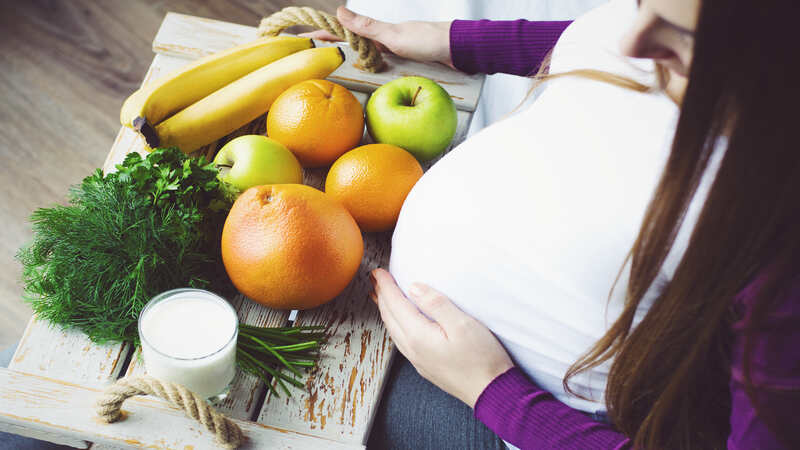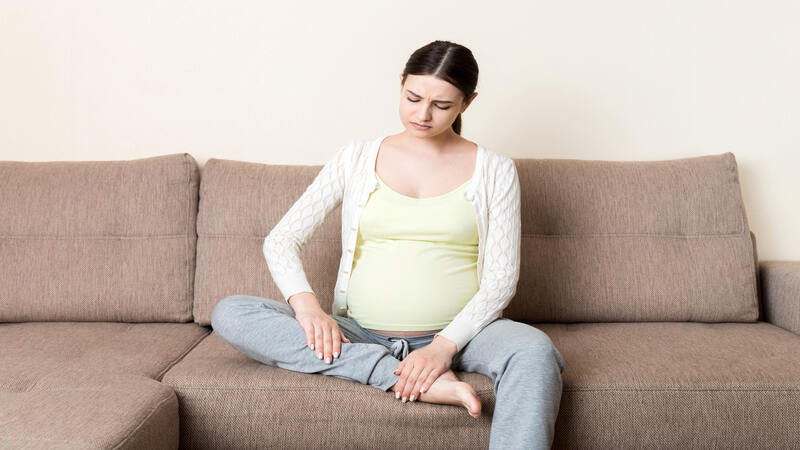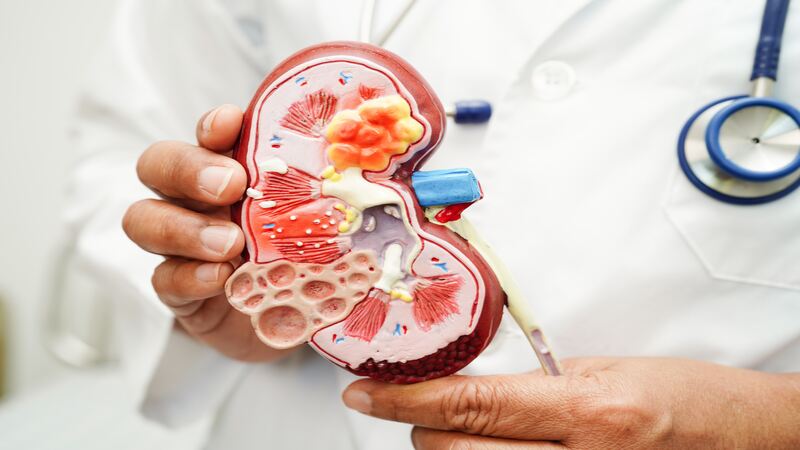 Calcium is often associated with bones and teeth, although its role in the life cycle is far more complex. It plays an important role in muscular wear and tear, hormone balance, neuron function, heart health, blood coagulation, and other biological processes. Calcium is not just important for strong bones; it is also necessary for your body’s entire function from fetal, and neonatal, to adult health (1).
Calcium is often associated with bones and teeth, although its role in the life cycle is far more complex. It plays an important role in muscular wear and tear, hormone balance, neuron function, heart health, blood coagulation, and other biological processes. Calcium is not just important for strong bones; it is also necessary for your body’s entire function from fetal, and neonatal, to adult health (1).
A well-balanced diet, an optimal body weight, and regular physical activity are all important aspects of preconception care (2). Practicing them not only increases fertility but also lowers the chance of gestational problems. Women can improve their chances of having a successful pregnancy and giving birth to a healthy baby by laying a solid foundation of nutritional, physical, mental, and emotional well-being.
Why Do I Need Calcium During Pregnancy?
During pregnancy, the fetus requires significant quantities of calcium for skeletal development and other body functions (3). Maternal nutrition during pregnancy influences offspring bone health (4). Insufficient maternal calcium can cause bone demineralization to meet fetal demands, resulting in maternal bone weakening and significant long-term health consequences. A woman’s greater physical demands and associated dietary imbalances may predispose her to an increased risk of fracture due to poor BMD, and illnesses such as osteoporosis, and arthritis later in life.
How Much Calcium Do I Need During Pregnancy?
 The daily recommended dietary allowance (RDA) for calcium in pregnancy and lactation is 1200 mg per day (5). Between the ages of 19 and 50, a woman’s need for calcium is 1,000 milligrams per day. This calcium intake is further increased by 250-300 mg during the last trimester of pregnancy. This calcium intake must also be maintained even after pregnancy, i.e. during lactation to keep your bones healthy and avoid the risk of osteoporosis in older age.
The daily recommended dietary allowance (RDA) for calcium in pregnancy and lactation is 1200 mg per day (5). Between the ages of 19 and 50, a woman’s need for calcium is 1,000 milligrams per day. This calcium intake is further increased by 250-300 mg during the last trimester of pregnancy. This calcium intake must also be maintained even after pregnancy, i.e. during lactation to keep your bones healthy and avoid the risk of osteoporosis in older age.
Safe Food Sources Of Calcium
The most common and rich sources of calcium are milk and dairy products. Although most women detest milk’s taste or smell, it can be consumed in various forms – much to your liking. Below is a list of food items, which should be increased in the diet during pregnancy to increase the calcium intake (6) naturally:
| Food items | Calcium Per 100 g/ml |
|
1. Milk and milk products: Curd, buttermilk, yogurt, cheese and Cottage cheese or paneer |
Milk 128.9 mg 83 mg |
|
2. Dark green leafy vegetables: Spinach, fenugreek, amaranths, kale, and moringa leaves |
99 mg |
|
3. Nuts and oil seeds: Sesame seeds Tahini Mixed nuts: Almonds, cashew, walnut Chia seeds Sunflower seeds Pumpkin seeds |
975 mg 426 mg 117 mg 631 mg 78 mg 46 g |
|
4. Eggs 5. Seafood: catfish, salmon, tuna, shrimp and canned salmon |
25 mg 15-70 mg |
|
6. Millets Ragi Amaranth Seeds |
344 mg 330 mg |
Here are a few more considerations to boost the calcium intake during pregnancy:
- Sprouting moong, moath beans, chana, matki, kulith, masoor, and other pulses improves their nutritional value. When pulses are sprouted, their calcium bioavailability rises and makes them easier to digest.
- Soy-based foods include soy milk, tofu, and soy nuggets, which are good plant-based dairy replacements for pregnant women. They provide a good source of calcium, especially when fortified.
- Fortified options: Look for fortified milk (almond, oat, rice), breakfast cereals, and even some fruit juices to increase your calcium intake during pregnancy.
Calcium Deficiency In Pregnancy
Adequate calcium intake is crucial for both mother and newborn health. Calcium supplementation appears to have minor benefits in terms of lowering the risk of preeclampsia and premature birth (7). It also plays an important role in maintaining bone health for both mother and child.
Signs And Symptoms Of Calcium Deficiency During Pregnancy
 Calcium deficiency during pregnancy can have harmful effects on both the mother and the fetus. Symptoms range from moderate to severe and can include
Calcium deficiency during pregnancy can have harmful effects on both the mother and the fetus. Symptoms range from moderate to severe and can include
- Brittle nails,
- Aching muscles,
- Muscle cramps,
- Joint pain,
- Pelvic pain, and
- Dry skin.
If you are pregnant and feel that your body is low on calcium, consult your doctor. Never take calcium supplements on your own, as much calcium can be harmful to both the baby and yourself.
Why Should I Take Calcium Supplements In Pregnancy?
Calcium, a vital mineral for bone health, is especially important during pregnancy to support maternal and fetal well-being. The dosage of your calcium supplement will be mostly determined by your real calcium intake in the diet. One liter of milk provides around 1200 mg of calcium. If you don’t like milk or are lactose intolerant, calcium supplements are what you need (8). Calcium supplements are deemed safe, and many are accessible on the market without a prescription. Some are even tailored exclusively to pregnant women.
Excess Calcium In Pregnancy
 If you have been taking too much calcium, you could be at a risk of causing long term effects on your body as well as on the baby. The upper limit of calcium during pregnancy is 3,000 mg for pregnant women aged 18 and below and 2,500 mg for those 19 and above. Suppose you are absorbing more than this amount of calcium. In that case, the body will disrupt the absorption of other essential minerals and vitamins, placing you at a risk of developing kidney stones. The fetus could also be affected due to hypercalcemia (excess calcium).
If you have been taking too much calcium, you could be at a risk of causing long term effects on your body as well as on the baby. The upper limit of calcium during pregnancy is 3,000 mg for pregnant women aged 18 and below and 2,500 mg for those 19 and above. Suppose you are absorbing more than this amount of calcium. In that case, the body will disrupt the absorption of other essential minerals and vitamins, placing you at a risk of developing kidney stones. The fetus could also be affected due to hypercalcemia (excess calcium).
Points To Note When Taking Calcium During Pregnancy
- It must be noted that calcium absorption is affected by caffeine. So try to avoid filling calcium requirements through coffee and tea
- Calcium may interfere with the absorption of iron and folic acid. This is particularly mentioned here, since iron and folic acid supplements are very frequently advised during pregnancy. What you can do is, plan out your medicine intake throughout the day such that there is reasonable gap between calcium supplements and other supplements
- Some calcium supplements contain lead, so read the ingredients carefully before laying your hands on them!
Oh and for your information, drinking water, both tap water and bottled water contains calcium. Yet another reason to sip more water! To secure the future health of you and your baby, do not underestimate the importance of vitamins and minerals. Eat healthy, live healthy!
FAQ’s
1. How Much Calcium do I Need When Pregnant?
You will need more than usual. A good 1,000 mg of calcium is required a day. This helps in baby’s growth.
2. How can I Increase my Calcium Intake?
Doctors will prescribe prenatal vitamins that include calcium. Increase your dairy intake. You can even get calcium from green leafy vegetables and eggs.
3. How Much Calcium Does the Fetus Need?
A fetus needs calcium for more than just bones. It needs it for a healthy heart and muscles. Ensure you consume at least 1,000 mg of calcium a day.
4. Which Trimester Should Calcium Intake Be More in?
Third trimester. This is when the baby’s growth peaks. The skeletal development peaks at this stage.
References
- Perreault, M., Atkinson, S. A., Mottola, M. F., Phillips, S. M., Bracken, K., Hutton, E. K., Xie, F., Meyre, D., Morassut, R. E., Prapavessis, H., Thabane, L., & BHIP Study team (2018). Structured diet and exercise guidance in pregnancy to improve health in women and their offspring: study protocol for the Be Healthy in Pregnancy (BHIP) randomized controlled trial. Trials, 19(1), 691. – https://pubmed.ncbi.nlm.nih.gov/30567604/
- Mate, A., Reyes-Goya, C., Santana-Garrido, Á., & Vázquez, C. M. (2021). Lifestyle, Maternal Nutrition and Healthy Pregnancy. Current vascular pharmacology, 19(2), 132–140. – https://pubmed.ncbi.nlm.nih.gov/32234002/
- Bone metabolism and osteoporosis during pregnancy and lactation – https://pubmed.ncbi.nlm.nih.gov/35182221/
- Bone resorption and dietary calcium in pregnancy-a window to future maternal bone health – https://pubmed.ncbi.nlm.nih.gov/33659997/
- National_Guidelines_for_Calcium_Supplementation_During_Pregnancy – https://nhm.gov.in/images/pdf/programmes/maternal-health/guidelines/National_Guidelines_for_Calcium_Supplementation_During_Pregnancy_and_Lactation.pdf
- National Institute Of Health, Calcium – https://ods.od.nih.gov/factsheets/Calcium-HealthProfessional/#
- Kumar A, Kaur S. Calcium: A Nutrient in Pregnancy. J Obstet Gynaecol India. 2017 Oct;67(5):313-318. doi: 10.1007/s13224-017-1007-2. Epub 2017 May – https://www.ncbi.nlm.nih.gov/pmc/articles/PMC5561751/
- Guideline: Calcium Supplementation in Pregnant Women. (2013). World Health Organization. – https://pubmed.ncbi.nlm.nih.gov/24006556/

